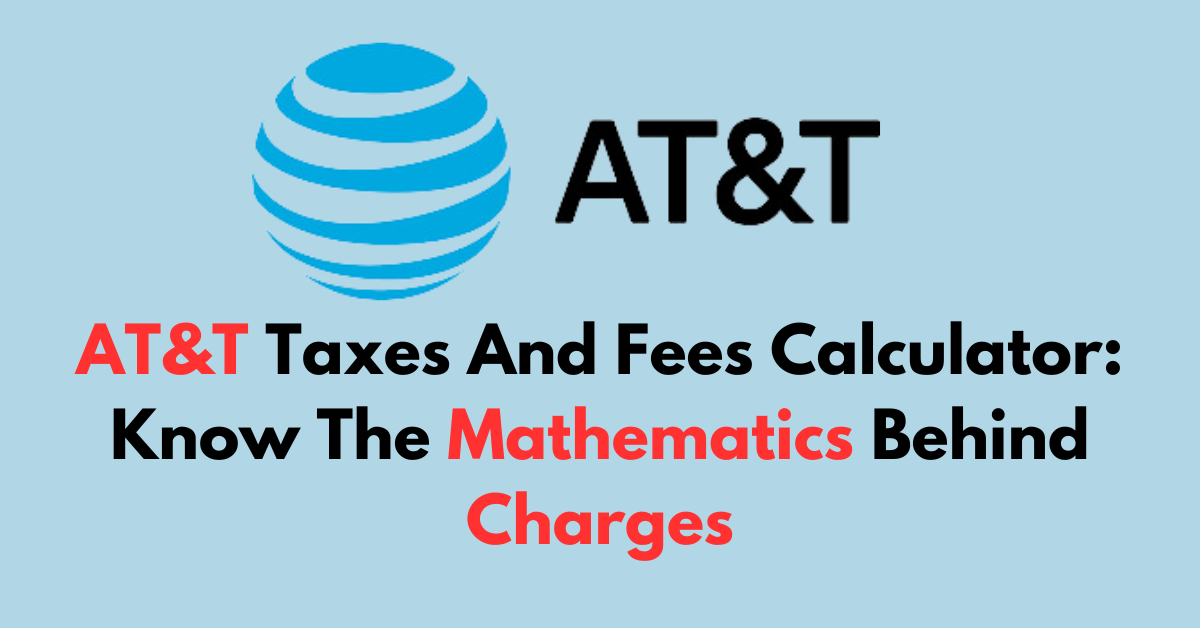When you pay for your phone service with AT&T, you might notice some extra charges on your bill. These are taxes and fees that the government or phone company adds.
The amount you pay can change depending on where you live and how much you use your phone.
This article will talk about these extra costs from AT&T so you know what to expect on your bill.
It’s good to learn about these fees if you’re thinking about using AT&T for your phone service.
What are The AT&T Taxes And Fees?
When you review your AT&T bill, you’ll notice several types of charges, taxes, and fees.
These are determined by regulatory requirements and the services you’ve chosen. Here’s a breakdown to help you understand each part of your billing statement.
1. Components of AT&T Charges
Service Charges: These include the basic costs for your wireless plan, data usage, and additional services like international calling or insurance.
- Monthly Plan: The base price for your talk, text, and data.
- Add-ons: Features like extra data or insurance options that you’ve selected.
2. Government Taxes and Fees
Federal Universal Service Charge: This fee helps to make phone service accessible to all Americans. It’s a percentage of your interstate and international telecommunication charges.
- State and Local Taxes: These are specific to your location and can include sales tax and other government-imposed fees.
3. AT&T Surcharges
Administrative Fee: AT&T charges this to help cover costs such as billing and provisioning of services.
- Regulatory Cost Recovery Charge: These charges help AT&T recover the costs of governmental compliance.
Each of these fees and taxes contributes to the final amount you see on your bill. Understanding these components ensures you’re informed about where your monthly payments are going.
How To Use AT&T Taxes And Fees Calculator?

There isn’t a specific tool or calculator provided directly by AT&T for you to calculate taxes and fees that will be applied to your wireless service bills.
The taxes, surcharges, and fees are based on rates determined by federal, state, and local laws, and they can vary by the service address and other factors.
For an estimate of the taxes and fees, you would typically look at your monthly billing statement, where AT&T itemizes these charges.
If you’re looking to estimate these costs before starting service or for a prospective plan change, you could ask AT&T customer service for a rough estimate based on your location and the services you’re considering.
However, keep in mind that these would only be estimates and the actual charges can only be confirmed on your billing statement after the fact.
How To Calculate Your Monthly AT&T Bill?
Understanding your monthly bill with AT&T involves two main components: the service usage and charges and the taxes and fees applied.
Below, you’ll find a breakdown to help you estimate the costs you might see on your monthly statement.
1. Service Usage and Charges
Your primary charges come from the plan you have subscribed to based on the services AT&T offers. This includes data, talk, and text. For example:
- Data: If you have a 5GB plan, you’ll be charged for this allowance.
- Talk & Text: Charges for these services will also be part of your monthly bill if not unlimited in your plan.
Additional charges can occur if you exceed your plan’s limits or utilize extra services, such as international calling or premium subscriptions.
2. Estimating Taxes and Fees
The actual amount in taxes and surcharges may vary by location due to different local and state regulations. Here’s what to look for:
- Federal Taxes and Fees: These are standard across all bills and include charges like the Federal Universal Service Charge.
- State and Local Taxes: These depend on the rates set by your state and municipality.
- AT&T Surcharges: These could include regulatory and administrative fees set by AT&T.

To get a specific estimate on how taxes and fees contribute to your bill, using tools like the AT&T tax exemption web tool can be helpful. Keep in mind the total sum of these fees will be added to your service charges to make up your final monthly bill.
Review Your Calculated AT&T Bill
When you receive your AT&T bill with taxes and fees included, it’s essential to understand how the final amount was determined and what charges you might see.
Understand Your Results
Your bill is more than just the base price of your plan; it includes mandatory taxes and surcharges, which vary by federal, state, and local laws as well as regulatory fees. You’ll typically see a breakdown that may list:
- Federal Universal Service Fund: A percentage of your interstate and international telecom charges.
- State and Local Taxes: This could include state sales tax, 911 fees, and other local taxes.
- AT&T Surcharges and Fees: Costs to recover AT&T’s contributions to governmental programs.
The calculated fees help ensure your service adheres to local and national regulations, maintaining your access to communication services.
Common Questions Addressed
Why are taxes and fees on one line different from another?
Some fees are flat across all lines, such as 911 fees, but others may vary due to usage or additional features.
Where can I find a more detailed explanation of my charges?
Your AT&T account typically has an itemized list of charges, and the AT&T Community Forums can be a resource for further clarification.
